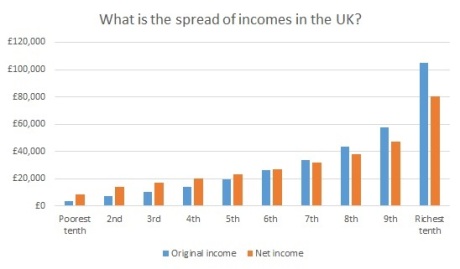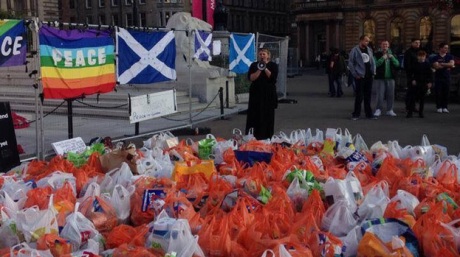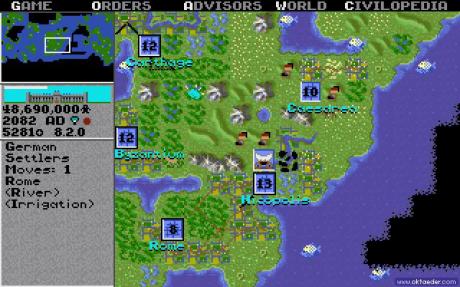 Great Britain, measured by GDP, is the world’s tenth richest country. Measured per capita it is ranked number twenty-seven (IMF, October 2014). In real terms this equates to each living person in the United Kingdom having an annual income of just over £24,000 per year. All things being equal, this should mean that the vast majority of British people have, by international standards, an excellent standard of living, but this is not the case. In fact Britain is now the most unequal society in the whole of Europe, a shameful reality the current coalition government hopes to ‘address’ by leaving the European Union and abandoning the European Convention on Human Rights.
Great Britain, measured by GDP, is the world’s tenth richest country. Measured per capita it is ranked number twenty-seven (IMF, October 2014). In real terms this equates to each living person in the United Kingdom having an annual income of just over £24,000 per year. All things being equal, this should mean that the vast majority of British people have, by international standards, an excellent standard of living, but this is not the case. In fact Britain is now the most unequal society in the whole of Europe, a shameful reality the current coalition government hopes to ‘address’ by leaving the European Union and abandoning the European Convention on Human Rights.

True reality in Britain is that more than half of the population live significantly below this national average income – such being the nature of averages and statistics. More than twenty percent of the British population live on between eight and nine thousand pounds per year and recent BBC research has found that the majority people living in poverty have full time employment. In March of this year it was estimated that over three million people in the UK are suffering from the effects of malnutrition due to the effects of poverty, all in a year when it was published that Britain’s richest ten percent doubled their wealth since the beginning of the financial crisis. The picture that is fast emerging in modern Britain is that it is a society where the gap between rich and poor is increasing rapidly, a situation that is soaking wealth from the bottom to the top. Starvation and developing world economic realities are very much a part of Britain’s present economy. What is perhaps most shocking is that this crisis is not being created by immigration, but by the Great British elite.
 Dispelling the myth of the ‘stingy Scot’ people all over Scotland have come together to kick out against the worst effects of a London driven austerity agenda. Central to the growing desire in Scotland for separation from the United Kingdom has been the idea of addressing the massive levels poverty in the country. Independence campaigners have consciously fused their political aspirations of self-determination with the active attempt to repair the damage caused by David Cameron’s “Broken Britain.” Since the narrow defeat of the Independence campaign in the September 18 referendum this positive social activism has continued, and so too has the campaign for independence. In the weeks after the referendum this continuation of the independence campaign has been a revolt against the victory of the union. It was not a fair fight, claim the supporters of independence, because all of the instruments of Westminster controlled media were set on the side of Better Together, and the people of Scotland were frightened into voting as they did. The donations for Scotland’s many Food Banks have continued alongside this growing, confident movement. Such generosity is news-worthy, but apparently the movement behind it is not. Weekly independence rallies in George Square in Glasgow have attracted large numbers of food donation, so much in fact that some Food Banks are being overwhelmed by food. The media is quite happy to cover the human interest story of giving, but it is not prepared to tell the whole story.
Dispelling the myth of the ‘stingy Scot’ people all over Scotland have come together to kick out against the worst effects of a London driven austerity agenda. Central to the growing desire in Scotland for separation from the United Kingdom has been the idea of addressing the massive levels poverty in the country. Independence campaigners have consciously fused their political aspirations of self-determination with the active attempt to repair the damage caused by David Cameron’s “Broken Britain.” Since the narrow defeat of the Independence campaign in the September 18 referendum this positive social activism has continued, and so too has the campaign for independence. In the weeks after the referendum this continuation of the independence campaign has been a revolt against the victory of the union. It was not a fair fight, claim the supporters of independence, because all of the instruments of Westminster controlled media were set on the side of Better Together, and the people of Scotland were frightened into voting as they did. The donations for Scotland’s many Food Banks have continued alongside this growing, confident movement. Such generosity is news-worthy, but apparently the movement behind it is not. Weekly independence rallies in George Square in Glasgow have attracted large numbers of food donation, so much in fact that some Food Banks are being overwhelmed by food. The media is quite happy to cover the human interest story of giving, but it is not prepared to tell the whole story. Sure we all know that playing video games is escapism and not reality, and few of us anymore buy the old nut that violence in some video games is the cause of much of the violence in our society. Growing up in the 80s and 90s I was an avid gamer, no – I was an addict. It started way back with my first ‘Personal Computer,’ the Commodore 64, and games like Dizzy and Rambo. A little later I was introduced to the concept of the ‘god’ or ‘strategy game’ with Armageddon Man. This sense of control over my little digital universe inspired me to seek out games of strategy on and off the computer or the games console. So we went through Megalomania and Sim City and a whole host of other like ‘wastes of time’ until we arrived at Civilization. Civ was so completely unlike the other games that we had played before. It put us in control of the armies that we had been used to and brought us into the diplomacy and conflict that we were familiar with already from playing Monopoly and Risk with the family. Yet it was so much more than this – it put us gamers in a world that was so much like the real world of the Cold War with its changing alliances, technological developments, wealth and trade, and nuclear weapons. For the little dictator in the making, this was the perfect first step into the grey area between wasting time and planning for the future.
Sure we all know that playing video games is escapism and not reality, and few of us anymore buy the old nut that violence in some video games is the cause of much of the violence in our society. Growing up in the 80s and 90s I was an avid gamer, no – I was an addict. It started way back with my first ‘Personal Computer,’ the Commodore 64, and games like Dizzy and Rambo. A little later I was introduced to the concept of the ‘god’ or ‘strategy game’ with Armageddon Man. This sense of control over my little digital universe inspired me to seek out games of strategy on and off the computer or the games console. So we went through Megalomania and Sim City and a whole host of other like ‘wastes of time’ until we arrived at Civilization. Civ was so completely unlike the other games that we had played before. It put us in control of the armies that we had been used to and brought us into the diplomacy and conflict that we were familiar with already from playing Monopoly and Risk with the family. Yet it was so much more than this – it put us gamers in a world that was so much like the real world of the Cold War with its changing alliances, technological developments, wealth and trade, and nuclear weapons. For the little dictator in the making, this was the perfect first step into the grey area between wasting time and planning for the future.







What The Readers Are Thinking